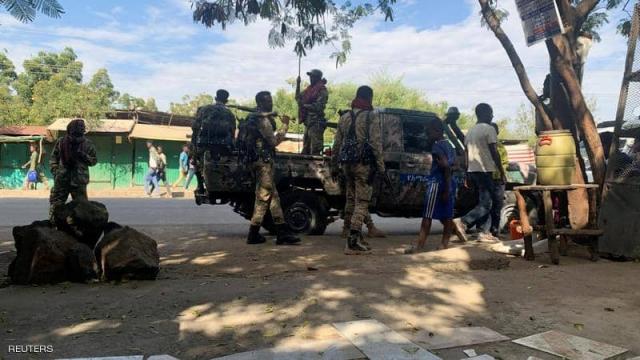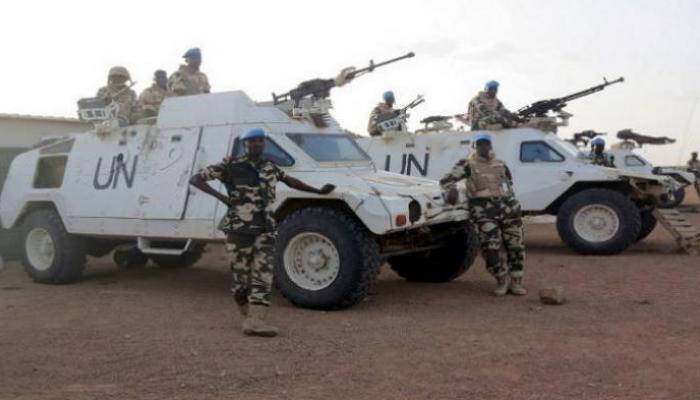Saturday, April 3, 2021
Press Release
———————————————–
On Saturday, April 3, 2021, the African Studies Unit of the Forum for Development and Human Rights Dialogue issued a report entitled “Crimes against Humanity in Tigray Province, Ethiopia.”
According to the report, Ethiopian and Eritrean forces have committed serious violations of international law, amounting to war crimes and crimes against humanity. In November 2020, the Ethiopian Prime Minister ordered a military operation against Tigray, which included heavy and indiscriminate air strikes by the Ethiopian army in the cities of Mekele, Hamira, Edigrat and rocket attacks in Amhara province; At least 83 civilians were killed and thousands displaced, followed by the incursion of Eritrean forces, which caused humanitarian violations and abuses, including massacres in the cities of Aksum and Dingilat in the centre of Tigray, and the Eritrean army engaged in large-scale looting of civilian property and extrajudicial executions, killing hundreds of civilians in the city of Aksum, opening fire in the streets and raiding houses.
The report highlights that it is impossible to establish an accurate count of the number of deaths, but estimates indicate that more than 200 civilians were killed on November 28 and 29, as well as the village of Dinkulat north of Mekele another massacre at the same time in which 164 civilians were killed, as well as physical and mental injuries, cases of gender-based violence, and reports of 136 rapes in hospitals in the capital of The Province of Thray.
According to the report, some women were forced by military elements to have sex with them, and girls and women in a number of refugee camps were subjected to sexual violence, according to the Special Representative of the UN Secretary-General.
The report also states that the genocide forced more than 80,000 Ethiopians to flee to Sudan for fear of being brutalized by the Ethiopian army and its militias, who have shed children’s blood and committed rapes and attacks against unarmed women.
More than 50,000 people, nearly half of them children, have arrived in Sudan, 2,500 refugees have been relocated from the border to um Rakouba camp in eastern Sudan, and nearly 6,000 have arrived at Tonidba camp in Sudan’s Qadarif state, according to UNHCR.
According to the report, a large-scale humanitarian crisis has begun to emerge as thousands of refugees continued to flee genocide in Ethiopia’s Tigray region on a daily basis in search of safety in eastern Sudan and that fighting, if it continues, would not stop at the border of the northern province of Tigray but its effects could include Eritrea, Sudan and Somalia, and could even include the Arab world and the Eastern Mediterranean.
This conflict has also displaced more than 5,000 refugees in and around Shire who live in difficult conditions and are reportedly forced to sleep in the open without water or food.
As for the UN efforts, the report states it has contributed assistance to displaced people from Tigray province in the May Einy and Adai Haroush camps, where 280,000 people were provided with water, 35,000 refugees received food aid and more than 65,000 displaced people received shelter and essential household items.
More recently, UN information states that security forces killed eight protesters in February 2021 in Adigrat, Mechli and Shire and Walkero, and fighting between federal forces of Prime Minister Abiy Ahmed’s government and those of the former ruling Tigray People’s Liberation Front (PFLP), the region’s ruling party, has resulted in thousands killed and displaced.
During December 2020, a massacre took place during a religious ceremony in Dinglat town, where a group of Eritrean soldiers opened fire on the church during mass, killing priests, entire families and a group of more than 20 pupils at Sunday school, the report said.
Also in Akum, 750 innocent people were killed on the grounds of St. Mary’s Church, as well as looting of all food sources, burning crops in the fields, looting public and private property, destroying monasteries, churches, mosques, hospitals and universities, breaking into Eritrean refugee camps, killing and abducting refugees among other crimes.
With regard to civilian casualties, the report explained that these military operations resulted in serious damage to the infrastructure. The infrastructure of the territory was destroyed, the water and electricity supplies were cut off and service facilities and public institutions were damaged, most notably the airport of the historic city of Axum, which completely suspended the airport service, and military operations restricted the movement of food, medical materials and other basic goods.
Ethiopian Prime Minister Abiy Ahmed claimed several times after the Ethiopian army entered the capital of Tigray that not a single civilian was injured or killed by artillery shelling or bombings, while doctors revealed otherwise as they wrote reports of many people killed and more injured.
According to the report, the UN High Commissioner for Human Rights called for an “objective and independent investigation” to be opened in Ethiopia’s Tigray region, after “establishing serious violations that may constitute war crimes and crimes against humanity.”








